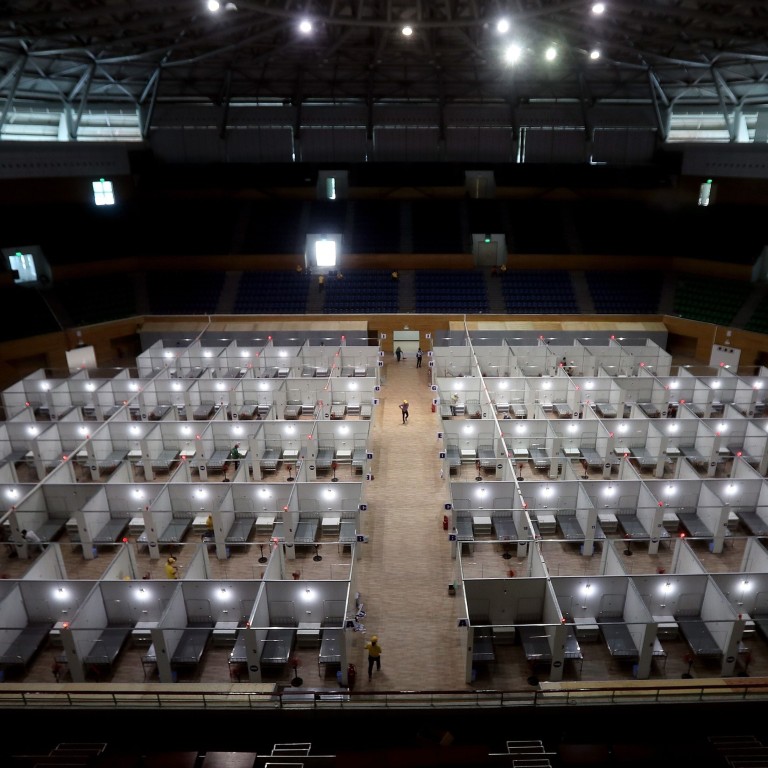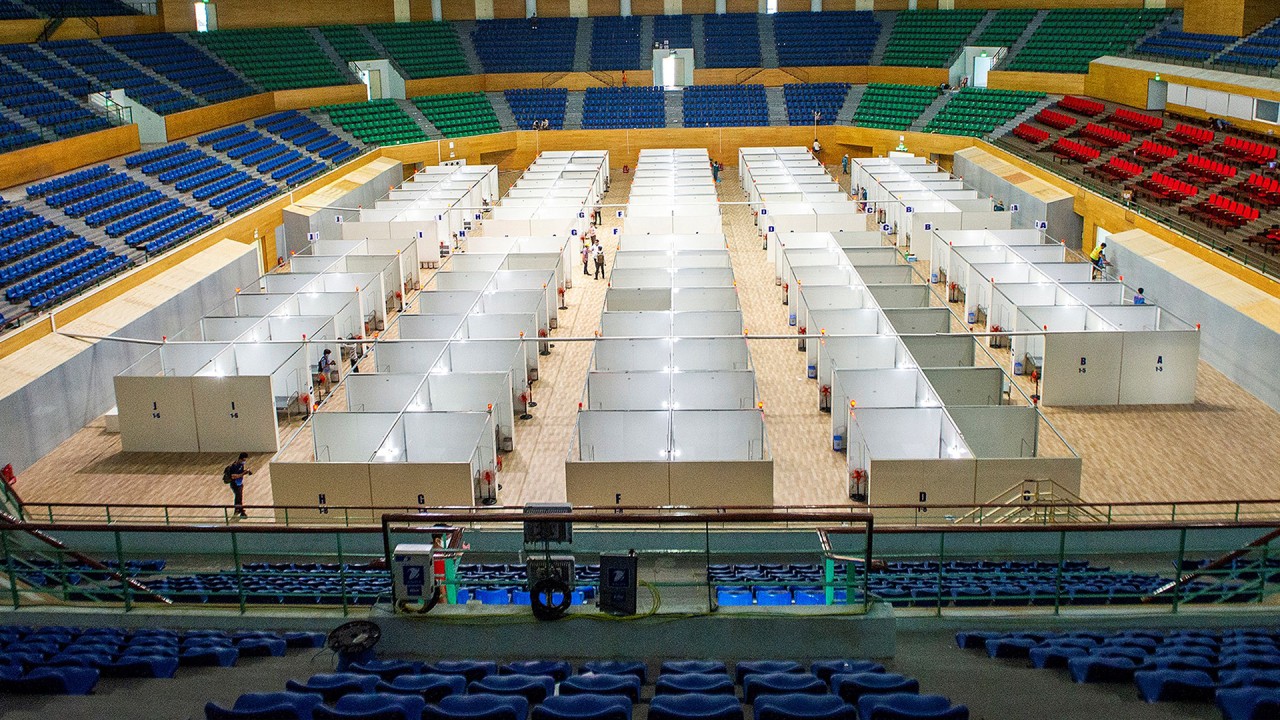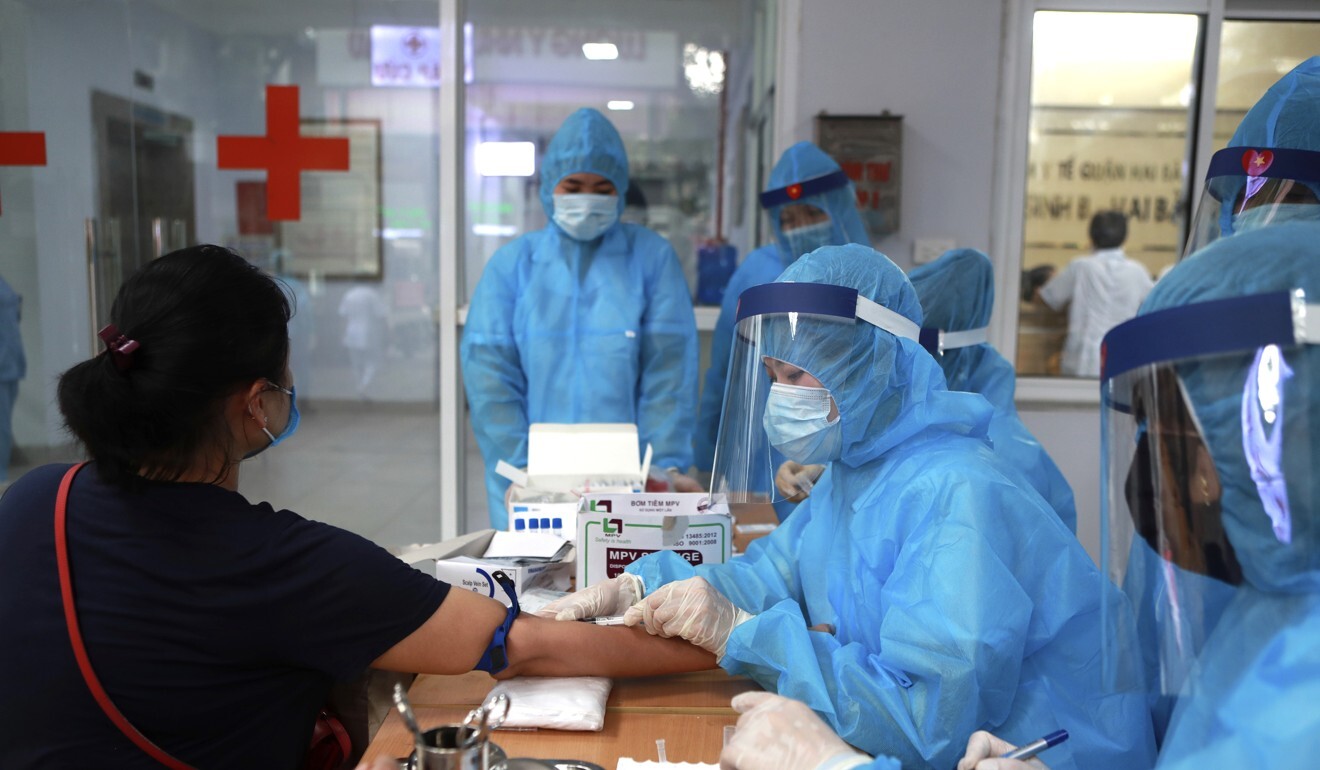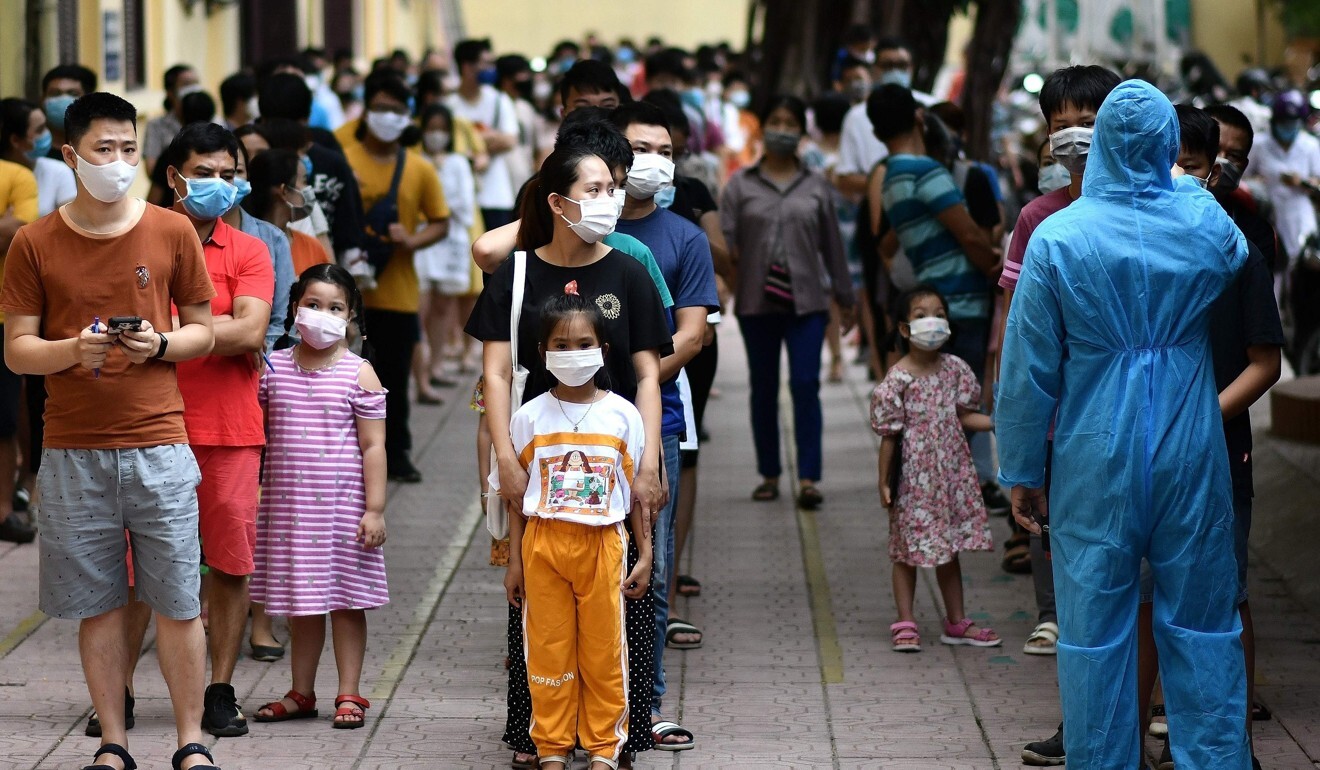
Vietnam cracks down on illegal entries from China as Covid-19 cases flare up
- The Southeast Asian nation is reeling from 192 new infections and 10 deaths since July 25, after going three months without detected local transmissions
- Vietnam’s prime minister ordered an investigation of illegal border crossings from China on the same day the virus resurfaced last month
There were 43 new cases reported on Wednesday and 34 more on Thursday, bringing Vietnam’s total to 747 cases. There have been 192 new cases since the virus resurfaced in Da Nang, the country’s new epicentre, on July 25, including all 10 of Vietnam’s related deaths. Infections have since been found in at least 10 locations around the country.

01:06
Vietnam turns Da Nang stadium into field hospital for coronavirus patients
On Tuesday, six men were sentenced to between two and six years of prison each for smuggling Chinese citizens into Vietnam. They were reportedly paid 4,000 yuan (US$573) for each smuggled individual.
Major General To An Xo, chief of the office of the Ministry of Public Security, said there had been an increasing number of illegal entries from neighbouring countries, mainly China.
At a regular press meeting on Monday, Xo said China had been suffering from the pandemic and other natural disasters, so a number of Chinese nationals had entered relatively safe Vietnam to find work or to travel. He said 177 of them had illegally entered the country since June.
Others had crossed through Vietnam to go to Cambodia for gambling activities, reported the An Ninh Thu Do newspaper run by the Hanoi police.

Prime Minister Nguyen Xuan Phuc ordered the Ministry of Public Security and local authorities to investigate the illegal entries on July 25, the day Vietnam confirmed its first local infection in 100 days, according to the Ministry of Health.
Vietnam banned the entry of foreigners and suspended international flights in late March. Only repatriated citizens and some foreigners have since been allowed in under strict conditions, including a 14-day mandatory quarantine.
The 1,400km border between Vietnam and China is extremely porous, with a complicated geography characterised by mountains and rivers – especially in the north – that makes it difficult to monitor cross-border traffic, according to Mimi Vu, an independent Vietnamese-American anti-trafficking expert based in Saigon.
The recent crackdown by the Vietnamese government stemmed from a national fear of disease amid the global pandemic, Vu said. She added that more Chinese citizens might enter Vietnam for work as factories had been relocated to the Southeast Asian nation in the wake of the trade war between the United States and China as well as the fallout from Beijing’s Covid-19 response.
Vietnam’s first coronavirus outbreak in 100 days spreads fear, anxiety
The source of the new outbreak remains unidentified. Since the re-emergence of community transmissions, they have spread from Da Nang, Vietnam’s third largest city and current epicentre, to other locations including Hanoi and Ho Chi Minh City.
Le Kim Tuyen and three of her family members have been isolating themselves at home in Da Nang for two weeks since her 56-year-old mother came into contact with a confirmed case.
“My mother couldn’t sleep for two days [when she found out]. I tried to calm her down in every way and feed her vitamin C and citrus juice so she feels healthy and less worried about being attacked by the virus,” Tuyen said.

Members of the family, including Tuyen’s one-year-old baby, have not shown any symptoms and are still waiting to be tested as the city has prioritised areas with higher Covid-19 exposure rates for testing.
“We can go to the hospital and request testing, but I think it is even more dangerous to go there than staying at home during this time,” Tuyen’s mother said.
Three major hospitals in Da Nang have been locked down since confirmed cases were linked to them, while infection rates among health care workers have been higher than previous outbreaks.
In an online government meeting last weekend, Ho Chi Minh City authorities called for a complete lockdown in Da Nang, similar to the one in Wuhan earlier this year, to curb the further spread of Covid-19 – but this has not materialised.
Coronavirus latest: Vietnam’s Da Nang city in lockdown amid fresh outbreak
“It is absolutely encouraged by the government to stay home as much as possible, but you can still go for a walk, go buy groceries, go to the minimart,” said Jeremy Smith, an American who owns a restaurant in the city.
“That’s what I want to stress – this is not Wuhan. It’s not that bad,” the 31-year-old said, adding that people have to maintain strict social distancing and wear masks when they go out. “I personally am not scared, but overall I feel the population of Da Nang is taking this outbreak far more seriously than the one in April.”
The National Steering Committee for Covid-19 Prevention and Control said at a Tuesday meeting that the new outbreaks in Da Nang and nearby Quang Nam Province had been brought under control but cases were expected to rise, according to state media.
On top of meticulous contact tracing and strict quarantine, Vietnam has also deployed more vigorous and widespread testing measures than in previous outbreaks.

